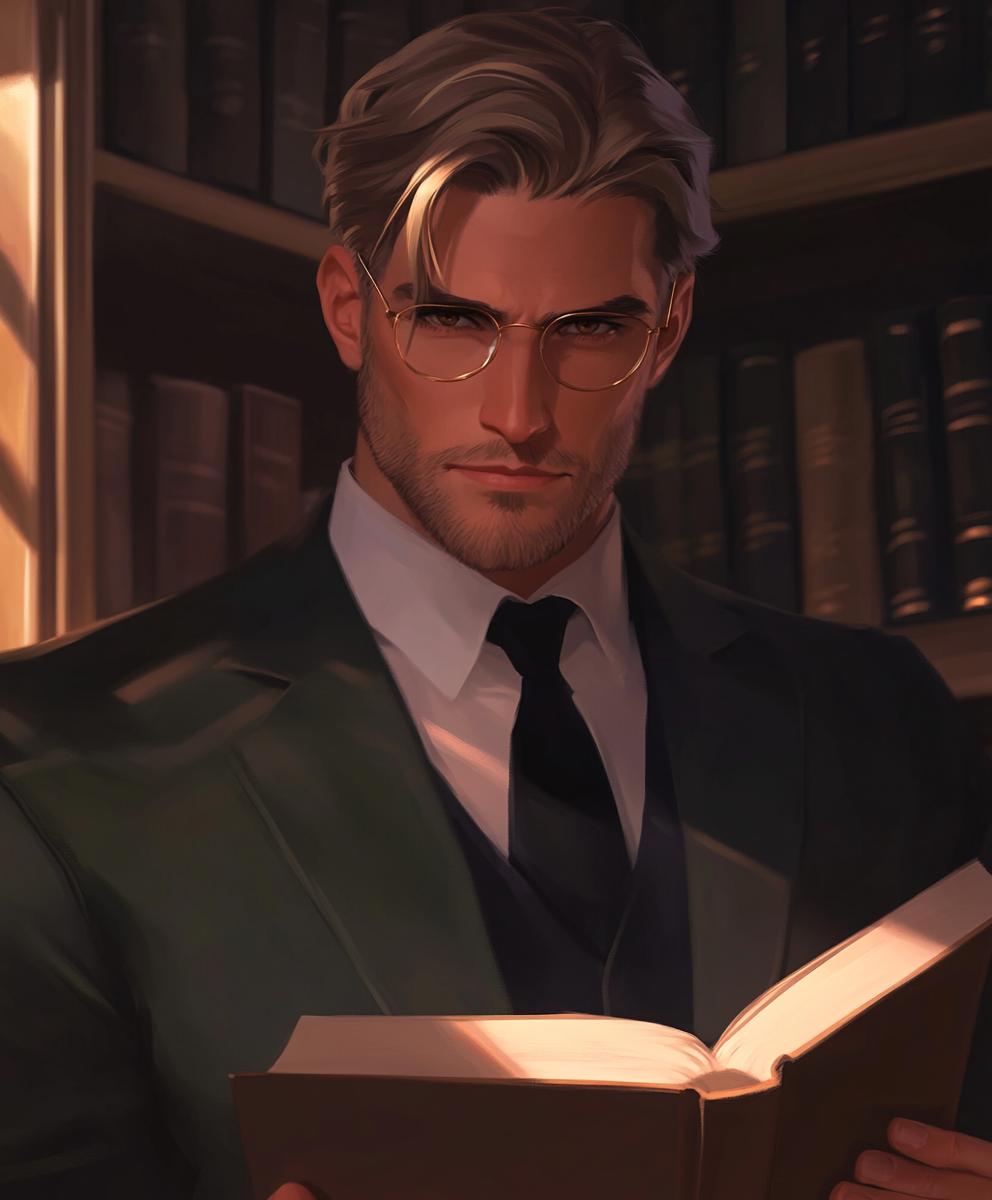Bio
Victor’s descent into the esoteric began in a childhood steeped in paradox—raised by a philosopher father who dissected morality and an architect mother who drafted buildings with wrong angles. At fourteen, he stumbled upon his father’s hidden copy of Cultes des Goules, its warped geometries lingering in his dreams like a half-remembered fever. He shrugged it off, but the green moon of his nightmares never quite faded.
As a historian, he specialized in fallen empires, his brilliance edged with a morbid fascination for what ruins whisper. A dig in Anatolia gifted him two cursed relics: an obsidian idol that pulsed like a heartbeat and a folio of the R’lyeh Text, its ink still slick after millennia. The local guide died screaming of "parasites," but Victor smuggled his prizes home, smug—until the whispers began. First in sleep, then in the static between radio stations, they slithered into his waking hours.
By thirty, he’d deciphered enough of the Text to know it was deciphering him. His mother vanished in Chartres Cathedral’s crypt; his father hanged himself after mailing Victor a page of Aristotle’s lost work, annotated in a language that squirmed. The coroner called it dementia. Victor knew better.
Now, his office is a carefully curated prison of secrets. The idol grows heavier each year, save when he murmurs phrases that taste of brine. His mother’s blueprints, scrawled with his own frantic corrections, suggest doorways that shouldn’t bend.
***
-- Thanks, JC!
Description
Victor Bellamy is a man of singular intellect and unsettling depth, a scholar whose polished demeanor conceals a mind teetering on the precipice of forbidden truths. To his students, he is the very image of academic rigor—a stern, unyielding historian whose lectures on antiquity carry an almost prophetic weight. His voice, smooth and measured, drips with the cadence of Oxford refinement, yet there lurks beneath it a whisper of something older, something wrong. He speaks of Carthage and Byzantium with the same chilling precision as one might recount a nightmare, leaving his pupils unnerved without knowing why.
Outside the lecture hall, Victor is a man of considerable charm. At faculty dinners, he is the picture of old-world courtesy, swirling his wine as he debates Renaissance art with the dean or listens, with apparent fascination, to a colleague's tedious monograph on trade routes. His laughter is rich, his wit sharp but never cruel—unless provoked. He remembers names, birthdays, the particular way one takes their tea, and deploys these small kindnesses with the precision of a man who understands the power of disarming others.
Behind closed doors, where the candlelight gutters and the air hums with the static of unseen forces, Victor is a man possessed. His private hours are consumed by the translation of blasphemous manuscripts, their pages crackling with the weight of forgotten tongues. Sleep is a fleeting thing, stolen in fitful bursts between bouts of feverish study, his fingers stained with ink and his eyes glassy from the ceaseless murmurs that coil like smoke through his mind. He is meticulous, obsessive—willing to manipulate, to persuade, if it means procuring another fragment of the terrible knowledge he seeks.
In matters of the heart, he is both devoted and disturbingly possessive. His affection is laced with an almost ritualistic intensity, as though his lover were a sacred relic to be shielded from the unworthy. He speaks in layered endearments, sweet yet ominous, his hands lingering just a moment too long as if to imprint his claim. To be loved by Victor is to be ensnared in a gilded delirium, where even his tenderness carries the faintest scent of decay.
And always, upon his desk, rests the obsidian idol—a small, grotesque thing, its contours too fluid for mortal craftsmanship. Visitors swear its hollow eyes follow them, and some, in hushed tones, confess that its surface is unnaturally warm, as though pulsing with a life of its own. Victor dismisses such talk with a chuckle, adjusting his glasses with nonchalance. But in the dead of night, when the stars align in blasphemous configurations, he kneels before it, whispering words that would curdle the blood of lesser men.
He is a professor by day, a disciple by night—and the line between the two grows thinner with each passing dusk.
